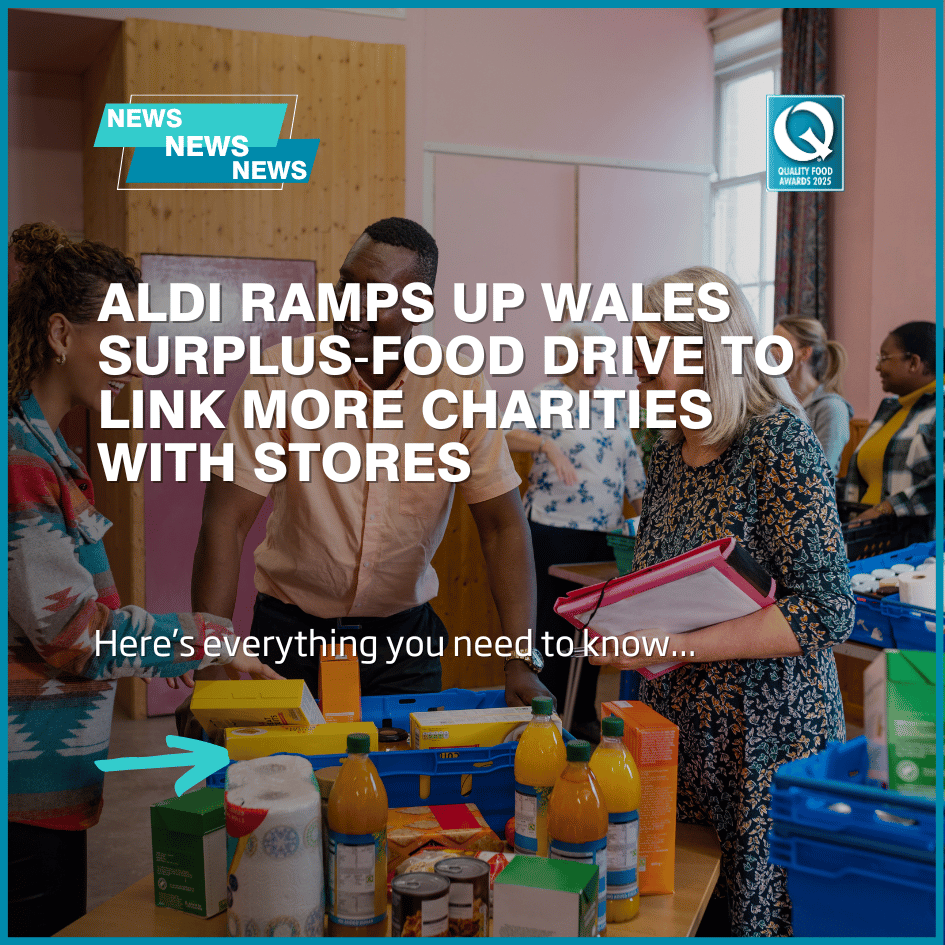
Aldi ramps up Wales surplus‑food drive to link more charities with stores
Aldi has expanded its partnership with community platform Neighbourly to match more Welsh charities, food banks and community groups with local stores for collection of near‑date fresh, chilled and long‑life items, alongside logistical support such as donated fridges to help organisations store perishable donations.
Aldi has opened a fresh drive to channel surplus produce to charities, community groups and food banks across Wales, inviting organisations to sign up to collect donations through its ongoing partnership with community giving platform Neighbourly. The move, announced locally this week, builds on a scheme that Aldi says pairs stores with nearby good causes to redistribute near‑date fresh and chilled items as well as long‑life products and bakery goods when they would otherwise go to waste.
Luke Emery, Aldi UK’s national sustainability director, said in the South Wales Argus that the scheme “plays a vital role in ensuring that fresh and healthy food is accessible to those in need all year round, while also allowing us to redistribute surplus stock that would otherwise go to waste.” He added the retailer was “pleased to be able to bring even more charities on board” as demand typically rises. Steve Butterworth, chief executive of Neighbourly, told the same paper that Aldi’s surplus donations provide “practical help” to organisations facing high demand with limited resources.
The programme operates through Neighbourly’s surplus‑food matching system, which the platform says links participating stores to verified local groups that can collect eligible donated items. Aldi’s corporate information describes how stores routinely make available long‑life groceries alongside fresh fruit and vegetables, chilled products and bakery stock; seasonal activity such as extra Christmas‑period collections is run under the same framework. Neighbourly’s guidance for charities sets out the practical steps to join — creating an organisation page, demonstrating appropriate hygiene certification, setting collection windows and accepting specified categories of donated food — and explains how retailers record and report donated tonnage.
The scheme’s scale has grown markedly since the partnership began. Aldi’s corporate material says the collaboration has resulted in tens of millions of meals being redirected to communities since 2019, and a recent report in Wales noted that 99,410 meals were donated to Welsh charities over a recent festive period via paired store collections. Neighbourly itself has pointed to new redistribution initiatives it runs — including operational and hygiene‑guidance updates — that it says could unlock substantially more surplus for communities, with claims that such measures have the potential to redirect up to two million additional meals per week through supermarkets and local collectors.
Support for charities has extended beyond food transfers. Over the winter Aldi donated more than 100 fridges to foodbanks and community organisations, an initiative reported to improve partners’ ability to store nutritious chilled food and thereby take more fresh donations. Aldi and its redistribution partners describe such logistical support as complementary to the day‑to‑day store‑level donation work, helping charities cope during busier months and easing pressure on over‑stretched local services.
The drive comes against a backdrop of heightened need for emergency food support. Local reporting and charity accounts highlight spikes in demand around holidays and during periods of economic strain, and Aldi points to its commitments under industry‑wide campaigns and targets — including adoption of food‑waste reduction frameworks — as part of its stated effort to cut waste and increase redistribution. Observers say improving handling, storage and collection logistics is essential if retailers are to turn surplus food into reliable, nutritious supplies for those who need it.
Charities and community groups interested in receiving donations are being asked to register via Neighbourly, which outlines the verification and operational steps required for organisations to be matched with nearby stores. Aldi’s announcements and press information reiterate that local groups eligible to collect donated items should check Neighbourly’s sign‑up process and contact the platform for support if needed.
Taken together, the measures signal an attempt to scale what Aldi and Neighbourly describe as a practical, store‑level approach to redistributing surplus food. Independent monitoring of outcomes — how much fresh and chilled food reaches people in need, and which organisations are able to sustain collections long term — will determine whether the widened drive significantly eases pressure on foodbanks and community services across Wales.
